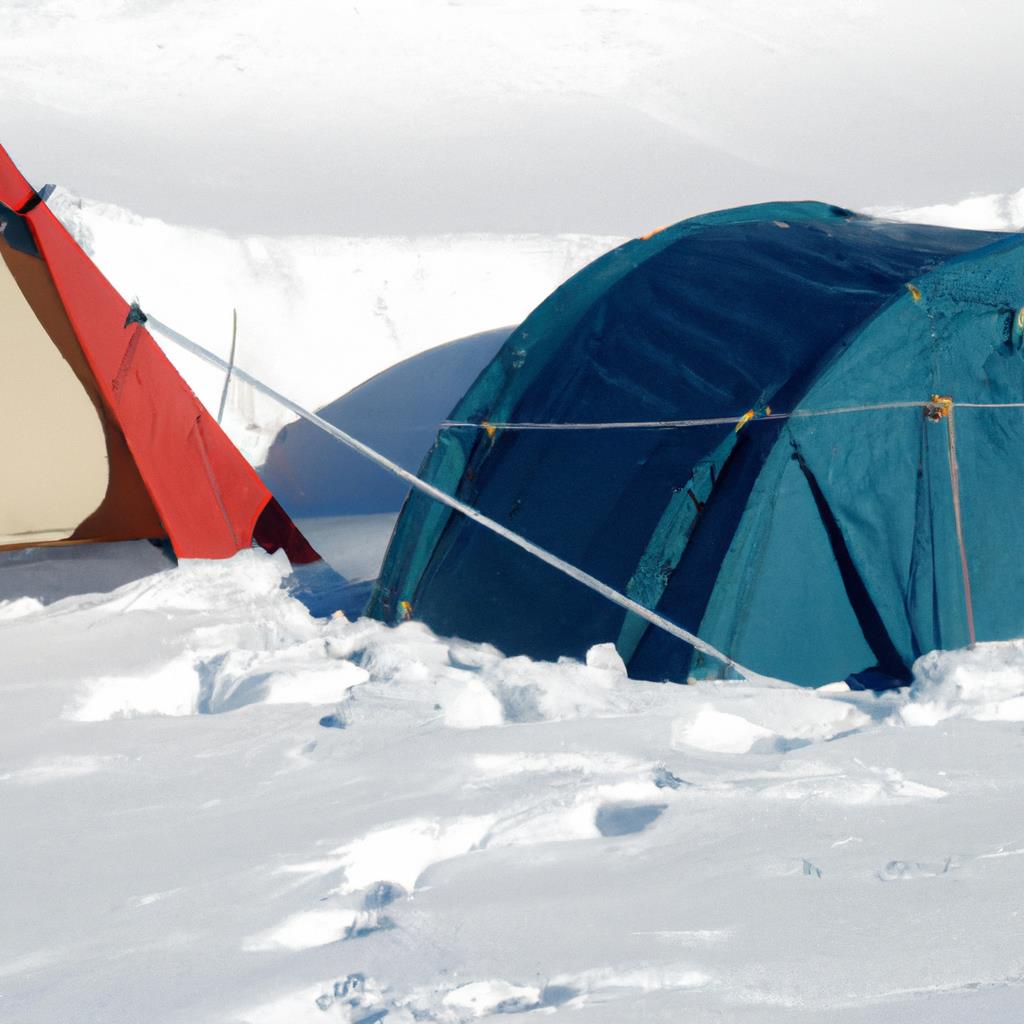Winter camping can be a thrilling and adventurous experience, but it also comes with its own set of challenges. As the temperature drops and snow begins to fall, it is crucial to properly maintain your campsite to ensure a safe and enjoyable outdoor experience. Here are some tips on how to prepare for the cold weather challenges that come with winter tenting and camping:
1. Inspect Your Gear: Before heading out into the winter wilderness, take the time to thoroughly inspect all of your camping equipment. Check for any signs of wear and tear on your tent, sleeping bags, and other gear. Make sure everything is in good working order and repair or replace any damaged items before you head out to your campsite.
2. Choose the Right Campsite: When camping in the winter, it is essential to choose a campsite that is well-protected from the elements. Look for a site that is shielded from strong winds and has good drainage to avoid any flooding. Try to find a spot that receives plenty of sunlight during the day to help keep you warm and dry.
3. Set Up Camp Properly: When setting up your tent in cold weather, make sure to properly insulate the ground beneath you. Use a waterproof groundsheet or tarp to protect your tent from moisture and cold. It is also a good idea to use a tarp as a windbreak to shield your campsite from strong gusts of wind.
4. Stay Dry: One of the biggest challenges of winter camping is staying dry. Moisture can quickly lead to hypothermia, so it is crucial to keep yourself and your gear as dry as possible. Make sure to use waterproof clothing and gear, and change into dry clothes as soon as you get wet. Always keep a supply of dry, warm clothing on hand in case of emergencies.
5. Keep Warm: In cold weather, it is essential to stay warm to avoid hypothermia or frostbite. Dress in layers to trap heat close to your body and insulate yourself from the cold. Consider bringing hot water bottles or chemical hand warmers to help keep you warm at night. It is also a good idea to bring a warm sleeping bag rated for winter temperatures.
6. Be Prepared for Emergencies: When camping in the winter, it is essential to be prepared for emergencies. Make sure to bring a well-stocked first aid kit, emergency supplies, and a way to communicate with the outside world in case of an emergency. It is also a good idea to tell someone where you are going and when you expect to return.
7. Practice Leave No Trace: In the winter months, it is more challenging to practice Leave No Trace principles due to the snow and frozen ground. Be extra careful to pack out all of your trash and waste and leave your campsite better than you found it. Avoid damaging vegetation or wildlife habitats, especially in the fragile winter environment.
8. Monitor the Weather: Winter weather can be unpredictable, so it is essential to monitor the forecast regularly when camping in cold weather. Be prepared to adjust your plans or evacuate your campsite if severe weather is on the way. Pay attention to wind, snow, and temperature forecasts, and always err on the side of caution.
9. Have Fun: Despite the challenges of winter camping, it can be an incredibly rewarding experience. Take the time to enjoy the beauty of the winter landscape, go for a hike or explore the snowy wilderness. Embrace the tranquility and peacefulness of the winter season and make memories that will last a lifetime.
In conclusion, winter campsite maintenance is crucial for preparing for the cold weather challenges that come with tenting and camping in the winter months. By following these tips and guidelines, you can ensure a safe and enjoyable outdoor experience that will leave you with lasting memories of your winter camping adventure.


leave a comment